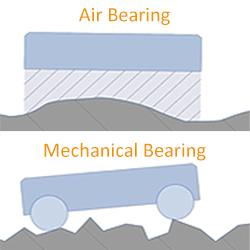DENSO brings Advanced Automotive Technology R&D to Israel
– New satellite R&D team accelerates innovation in automated driving and cybersecurity –
― DENSO Corporation today unveiled its newest innovative satellite R&D team in Israel, accelerating advanced technologies like automated driving, cybersecurity, and AI. Starting in April, DENSOs R&D satellite will begin collaborating with local startups to pioneer new technologies.
This is the newest satellite in DENSOs global R&D network located in key regions. DENSO distributes cutting-edge R&D functions around the world and works with local universities, research institutions, startups, and various other partners to develop competitive products and technologies tailored to customers and regional characteristics. DENSO recently announced an initiative to broaden R&D capabilities outside Japan, and in 2017, started satellite R&D activities in Helsinki, Finland focusing on creating advanced technologies and services.
DENSOs satellite R&D activities in Israel build on the countrys surge in innovative technologies in fields spanning cybersecurity, telecommunications, AI, sensing, and software. Israeli companies and tech startups have an established track record for successful collaboration with companies overseas, and are expected to play a major role in global innovation across a number of fields.
DENSO will tap into Israels technology strengths to quickly develop more competitive technologies, both internally and through collaborative research with local companies and universities. The technologies and products developed in Israel will contribute to DENSOs mission to deliver safe and sustainable mobility solutions that improve peoples lives and benefit the environment.
About DENSO in North America
DENSO is a leading global automotive supplier of advanced technology, systems and components in the areas of thermal, powertrain control, electronics and information and safety. With its North American headquarters located in Southfield, Michigan, DENSO employs more than 23,000 people at 28 consolidated subsidiaries and 4 affiliates across the North American region. Of these, 25 are manufacturing facilities located in the United States, Canada and Mexico. In the United States alone, DENSO employs more than 17,000 people in Alabama, Arkansas, California, Iowa, Georgia, Kentucky, Michigan, North Carolina, Ohio, Pennsylvania, South Carolina, Tennessee and Texas. DENSOs North American consolidated sales totaled US$9.6 billion for the fiscal year ending March 31, 2017. For more information, go to www.denso.com/us-ca/en. Connect with DENSO on Facebook at www.facebook.com/DENSOinNorthAmerica.
About DENSO Corporation
DENSO Corp., headquartered in Kariya, Aichi prefecture, Japan, is a leading global automotive supplier of advanced technology, systems and components in the areas of thermal, powertrain control, electronics and information and safety. Its customers include all the world's major carmakers. Worldwide, the company has more than 200 subsidiaries and affiliates in 38 countries and regions (including Japan) and employs more than 150,000 people. Consolidated global sales for the fiscal year ending March 31, 2017, totaled US$40.4 billion. Last fiscal year, DENSO spent 9.0 percent of its global consolidated sales on research and development. DENSO common stock is traded on the Tokyo and Nagoya stock exchanges. For more information, go to www.denso.com, or visit our media website at www.denso.com/global/en/news/media-center/
Featured Product

PI USA - Gantry Stages for Laser Machining and Additive Manufacturing
High performance gantry systems, from PI, are used in precision assembly, laser machining, and additive manufacturing. Complete with software and state-of-the-art EtherCat® motion controllers. Easy to program, easy synchronization with lasers and dispensers. Standard and custom, compact systems and large, granite-based units.
